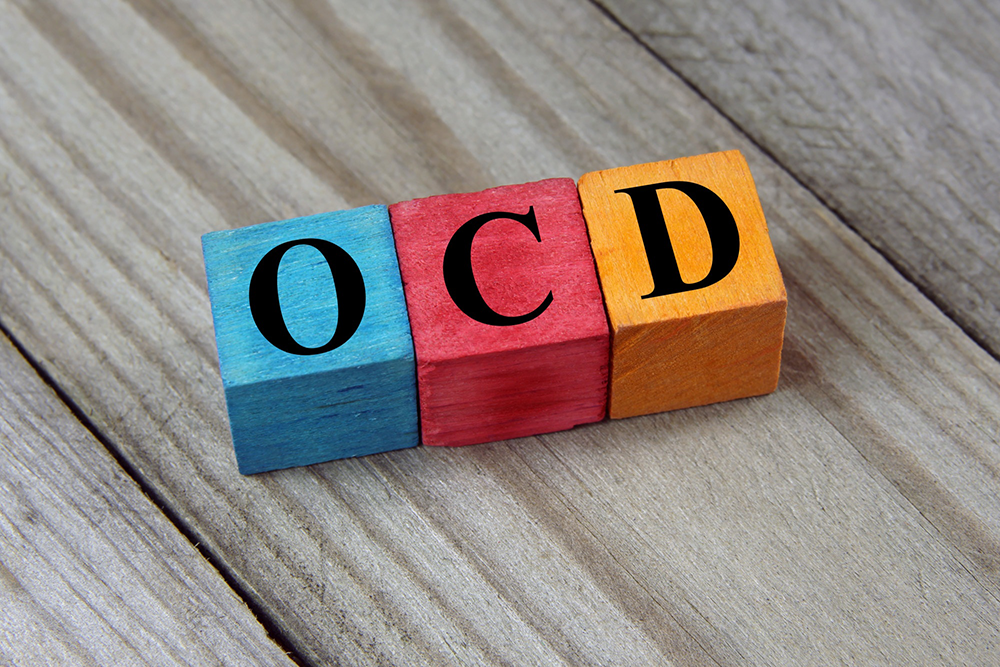
Obsessive-Compulsive Disorder (OCD) in teens can be challenging, but effective treatment offers real hope. Evidence-based therapies like CBT and Exposure and Response Prevention (ERP) help manage intrusive thoughts and behaviors. SSRIs may also be prescribed to support brain chemistry. Family involvement, school support, and a structured environment are key to success. With the right care, teens can regain control, develop healthy coping skills, and build lasting confidence in themselves.
Blume Behavioral Health in Redondo Beach, CA, offers specialized OCD treatment for teens aged 12–17. Utilizing evidence-based therapies like Cognitive Behavioral Therapy (CBT) and Exposure and Response Prevention (ERP), our programs are tailored to address the unique challenges adolescents face. With a focus on individualized care, family involvement, and a supportive environment, Blume helps teens manage OCD symptoms and build resilience.
Obsessive-Compulsive Disorder (OCD) is a mental health condition that involves unwanted thoughts (obsessions) and repetitive behaviors (compulsions) performed to ease anxiety. Though irrational, these rituals feel necessary. Common obsessions include fears of contamination, harm, or losing control, while compulsions often involve cleaning, checking, or counting. OCD can significantly disrupt daily life without proper treatment.
OCD affects individuals of all ages and can interfere significantly with daily life, school, work, and relationships. The cycle of obsessions and compulsions can become time-consuming and emotionally exhausting. Many people with OCD feel ashamed or isolated due to the nature of their thoughts or behaviors, which may delay seeking help.
Fortunately, OCD is treatable. Evidence-based therapies such as CBT for teens, especially Exposure and Response Prevention (ERP), are highly effective. In some cases, medication like selective serotonin reuptake inhibitors (SSRIs) may also help reduce symptoms.

Obsessions are unwanted, intrusive thoughts, images, or urges that repeatedly enter a person’s mind, causing distress or anxiety. These thoughts are often disturbing and go against the individual’s values or desires, making them feel out of control. Obsessions are a core symptom of Obsessive-Compulsive Disorder (OCD).
People with OCD try to ignore or neutralize these obsessions through compulsions—repetitive behaviors or mental acts intended to reduce anxiety. However, this cycle can become overwhelming and interfere with daily functioning. Obsessions are not simply worries about real-life problems; they are irrational and persistent.
Common examples of obsessions include:
Recognizing obsessions as part of OCD is the first step toward effective treatment and relief.
Compulsions are repetitive behaviors or mental acts that a person feels driven to perform in response to an obsession. These actions are meant to reduce the anxiety or discomfort caused by the obsession, but they often provide only temporary relief. Over time, compulsions can become rituals that interfere with daily life.
While some compulsions are outward behaviors, others are mental, such as silently counting or repeating phrases. People with OCD usually know these actions are irrational, but they feel unable to stop. Compulsions can become time-consuming and exhausting, making it difficult to focus on school, work, or relationships.
Common examples of compulsions include:
Understanding compulsions is essential for diagnosing and treating OCD with effective therapies like Exposure and Response Prevention (ERP).
Living with OCD as a teen can be incredibly challenging. Obsessive thoughts often feel overwhelming, and the compulsive behaviors that follow can take up hours of the day. Teens may struggle to concentrate in school, maintain friendships, or enjoy activities they once loved. The need to hide their symptoms can lead to feelings of isolation and shame.
Many teens with OCD recognize that their thoughts or rituals don’t make sense, but the fear and anxiety they feel are very real. They may feel trapped in a cycle of distressing thoughts and repetitive actions, unsure how to break free. Social situations can become stressful, especially if others don’t understand what they’re going through.
Support from family, friends, and professionals makes a big difference. With the right therapy, like Cognitive Behavioral Therapy (CBT) and Exposure and Response Prevention (ERP), teens can learn to manage their symptoms, build confidence, and regain control of their lives.
Recognizing the signs of OCD in teens can be challenging, as symptoms may be mistaken for normal adolescent behavior or anxiety. However, when obsessive thoughts and compulsive behaviors interfere with daily life, they may indicate OCD. Teens may feel ashamed or confused by their symptoms, making them hesitant to talk about them.
Obsessions often cause intense anxiety, while compulsions are performed to try to relieve that anxiety. These rituals can be time-consuming and disruptive. Parents, teachers, and caregivers should watch for patterns of behavior that seem excessive, secretive, or driven by fear.
Common signs of OCD in teens include:
Early diagnosis and treatment are key.
OCD can have a profound impact on a teenager’s daily life, affecting their emotional well-being, academic performance, and relationships. The constant presence of intrusive thoughts and the pressure to complete compulsive rituals can lead to stress, frustration, and a sense of helplessness. Many teens feel isolated or misunderstood because of their symptoms.
At school, OCD can interfere with concentration, homework, and participation. Teens may avoid certain classes, struggle with perfectionism, or spend excessive time on assignments. Socially, they might withdraw from friends or activities to hide their behaviors or avoid triggers, which can lead to loneliness and low self-esteem.
Ways OCD can impact teenage life include:
With support and treatment, teens can find relief and rebuild balance.
Talking to teens about OCD requires sensitivity, patience, and understanding. Many teens feel ashamed, confused, or afraid of being judged for their thoughts and behaviors. Start by creating a safe, nonjudgmental space where they feel comfortable opening up. Let them know that OCD is a medical condition—not their fault—and that help is available.
It’s important to listen without interrupting or minimizing their experiences. Instead of focusing on the content of their obsessions or rituals, emphasize how these thoughts and behaviors are affecting their life. Reassure them that they are not alone and that many people struggle with similar symptoms.
Encourage your teen to speak with a mental health professional who understands OCD. Treatment, such as Cognitive Behavioral Therapy (CBT) and Exposure and Response Prevention (ERP), can be highly effective. Involving the teen in decisions about their care helps them feel empowered and supported on their journey to recovery.
Treating teens with OCD involves a compassionate and tailored approach that addresses their unique developmental needs. Early diagnosis and intervention are crucial to prevent symptoms from worsening and disrupting their lives. Treatment often combines therapy, medication, and family support to create a strong foundation for recovery.
Cognitive Behavioral Therapy (CBT), particularly Exposure and Response Prevention (ERP), is the gold standard for OCD treatment in teens in Redondo Beach. ERP helps teens face their fears and resist compulsive behaviors in a gradual, controlled way. Medication, such as selective serotonin reuptake inhibitors (SSRIs), may be prescribed to help manage symptoms when therapy alone isn’t enough.
Key components of effective OCD treatment for teens include:
With the right treatment, teens can regain control and build resilience.
Blume Behavioral Health provides specialized OCD treatment for teens, offering a structured and compassionate approach to managing obsessive-compulsive symptoms. Our teen treatment programs integrate evidence-based therapies such as Cognitive Behavioral Therapy (CBT) and Exposure and Response Prevention (ERP), helping teens develop healthier thought patterns and coping strategies. We provide personalized care for teens with OCD, fostering resilience, growth, and lasting recovery in a supportive, empowering environment.
If you or a loved one is seeking support for mental health, our team at Blume Behavioral Health is here to help. Contact us today to learn more about our personalized programs for adolescents and young adults.
Dr. Aneta Lotakov Prince is a board-certified psychiatrist with over 20 years of clinical experience treating adolescents and adults facing severe mental illness, co-occurring substance use disorders, and complex emotional and behavioral health challenges. Certified by the American Board of Psychiatry and Neurology, she holds an active DEA registration and California medical license. Dr. Prince’s patient-centered approach is rooted in compassion and driven by a dedication to improving quality of life and supporting long-term recovery. She remains deeply committed to empowering each individual she works with to build a life of purpose, connection, and resilience.